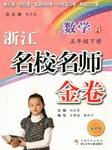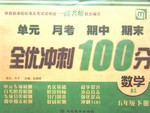题目内容
阅读理解。
Teachers at American colleges and universities have many different teaching methods. Some teachers
give homework and check homework every day, and students in their classes have to take many exams.
Some teachers give only writing tasks. Some teachers always follow a course outline and usually use the
textbook. Others send students to the library for tasks.
The atmosphere in some classrooms is very formal. Students call their teachers Professor (教授) Smith,
Mrs. Jones and so on. Some teachers wear business clothes and give talks. Other classrooms have an informal ( 非正式的 ) atmosphere. Students and teachers discuss their ideas. Teachers dress informally, and students
call them by their first names. American teachers are different in their teaching styles.
At most American colleges and universities, libraries and learning centers can be used by students at any
time. They can often use tape recorders, video machines and computers. They can buy books, notebooks and
other things at campus stores. There are also services (服务) to students. They can get advice on their
problems from their teachers. Colleges and universities usually offer facilities (设施) to students. Some schools
have swimming pools and tennis courts. Most have fast food restaurants.
give homework and check homework every day, and students in their classes have to take many exams.
Some teachers give only writing tasks. Some teachers always follow a course outline and usually use the
textbook. Others send students to the library for tasks.
The atmosphere in some classrooms is very formal. Students call their teachers Professor (教授) Smith,
Mrs. Jones and so on. Some teachers wear business clothes and give talks. Other classrooms have an informal ( 非正式的 ) atmosphere. Students and teachers discuss their ideas. Teachers dress informally, and students
call them by their first names. American teachers are different in their teaching styles.
At most American colleges and universities, libraries and learning centers can be used by students at any
time. They can often use tape recorders, video machines and computers. They can buy books, notebooks and
other things at campus stores. There are also services (服务) to students. They can get advice on their
problems from their teachers. Colleges and universities usually offer facilities (设施) to students. Some schools
have swimming pools and tennis courts. Most have fast food restaurants.
1. At American colleges and universities, some teachers _________.
A. never give their students any homework
B. give classes in the library
C. give only writing tasks
D. only give their students writing exams
B. give classes in the library
C. give only writing tasks
D. only give their students writing exams
2. In an informal class, _________.
A. students call their teachers Professor Smith, Mrs. Jones and so on
B. students discuss their ideas with their teachers
C. students have to take many exams
D. teachers dress formally
B. students discuss their ideas with their teachers
C. students have to take many exams
D. teachers dress formally
3. The underlined word "campus" means _________ in Chinese.
A. 校园
B. 工厂
C. 社区
D. 广场
B. 工厂
C. 社区
D. 广场
4. According to the passage, most schools in America have _________.
A. swimming pools
B. fast food restaurants
C. tennis courts
D. basketball courts
B. fast food restaurants
C. tennis courts
D. basketball courts
5. Which of the following is not mentioned in this passage?
A. Teaching methods.
B. Teaching styles.
C. College facilities.
D. University dinning rooms.
B. Teaching styles.
C. College facilities.
D. University dinning rooms.
1-5 CBABD

练习册系列答案
 浙江名校名师金卷系列答案
浙江名校名师金卷系列答案 全优冲刺100分系列答案
全优冲刺100分系列答案
相关题目
| 阅读理解。 | ||||||||||||||||||||
The following form shows some CCTV shows.
| ||||||||||||||||||||
| 1. Who are the hosts of News Broadcast of CCTV-1? | ||||||||||||||||||||
| A. Zhang Hongmin and Li Zimeng. B. Ouyang Zhiwei. C. Liu Ye and Bian Ce. D. Dong Yi. | ||||||||||||||||||||
| 2. When can we watch The First Time on Sunday? | ||||||||||||||||||||
| A. At 19:00—19:30. B. At 7:00—9:00. C. At 9:00—10:00. D. At 19: 10. | ||||||||||||||||||||
| 3. If we want to learn something about movies, we can watch ______. | ||||||||||||||||||||
| A. CCTV-1 B. CCTV-2 C. CCTV-6 D. CCTV-11 | ||||||||||||||||||||
| 4. The TV show Dong Yi hosts is ______. | ||||||||||||||||||||
| A. News Broadcast B. The First Time C. The World Movie Trip D. Learn after Me | ||||||||||||||||||||
| 5. Which of the following is NOT true? | ||||||||||||||||||||
| A. Ouyang Zhiwei is one of the hosts of CCTV-2. B. Dong Yi is one of the hosts of CCTV-6. C. Te can watch The World Movie Trip every day. D. We can watch Learn after Me three times every week. |
 of(松开)my beard, boy!"
of(松开)my beard, boy!" t
t